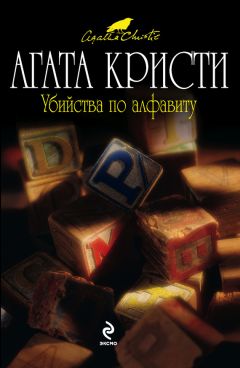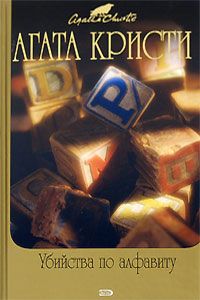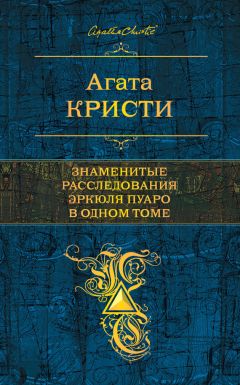Agatha Christie - Английский язык с Агатой Кристи. Убийства по алфавиту
"But then I came up against a definite difficulty (но затем я столкнулся с определенной сложностью; to come up against — столкнуться с чем-либо)."
"Up to the time of the Barnard murder (до времени убийства Барнард), no facts about the A.B.C. murders had been made public (никакие факты об убийствах Эй-би-си не стали публичными = не стали достоянием публики). The Andover murder had created little interest (эндоверское убийство породило мало интереса; to create — творить, создавать). The incident of the open railway guide had not even been mentioned in the press (случай с открытым железнодорожным справочником даже не был упомянут в прессе). It therefore followed (поэтому следует) that whoever killed Betty Barnard must have had access to facts known only to certain persons (что кто бы ни убил Бетти Барнард, он должен был иметь доступ к фактам, известным только определенным людям) — myself (мне /самому/), the police (полиции), and certain relations and neighbours of Mrs. Ascher (и некоторым родственникам и соседям миссис Эшер)."
"That line of research seemed to lead me up against a blank wall (эта линия расследования, казалось, привела меня к белой/пустой стене; blank — белый; пустой)."
The faces (лица) that looked at him (которые смотрели на него) were blank too (были пустыми тоже). Blank (сбитыми с толку; blank — озадаченный, смущенный) and puzzled (и озадаченными).
Donald Fraser said thoughtfully (Дональд Фрейзер сказал задумчиво): "The police (полицейские), after all (в конце концов), are human beings (человеческие существа). And they're good-looking men (и они симпатичные мужчины) — "
He stopped (он остановился), looking at Poirot inquiringly (глядя вопросительно на Пуаро).
access [ˈækses], blank [blæŋk], whoever [hu(:)ˈevǝ]
"But then I came up against a definite difficulty."
"Up to the time of the Barnard murder, no facts about the A.B.C. murders had been made public. The Andover murder had created little interest. The incident of the open railway guide had not even been mentioned in the press. It therefore followed that whoever killed Betty Barnard must have had access to facts known only to certain persons — myself, the police, and certain relations and neighbours of Mrs. Ascher."
"That line of research seemed to lead me up against a blank wall."
The faces that looked at him were blank too. Blank and puzzled.
Donald Fraser said thoughtfully: "The police, after all, are human beings. And they're good-looking men — "
He stopped, looking at Poirot inquiringly.
Poirot shook his head gently (Пуаро мягко покачал головой). "No — it is simpler than that (это проще, чем это). I told you (я сказал вам) that there was a second speculation (что было второе предположение; to speculate — обдумывать; полагать, предполагать)."
"Supposing (предположим) that Cust was not responsible for the killing of Betty Barnard (что Каст не был ответственен за убийство Бетти Барнард)? Supposing (предположим) that someone else killed her (что кто-то другой убил ее). Could that someone else have been responsible for the other murders too (мог /ли/ этот кто-то другой быть ответственен за два других убийства тоже)?"
"But that doesn't make sense!" cried Clarke (но это не имеет смысла, — воскликнул Кларк).
"Doesn't it (неужели)? I did then (я сделал тогда) what I ought to have done at first (что мне следовало сделать сначала). I examined the letters (я изучил письма) I had received (которые я получил) from a totally different point of view (с совершенно отличной = иной точки зрения; total). I had felt from the beginning (я чувствовал с самого начала) that there was something wrong with them (что с ними было что-то не так: «что там было что-то неправильное с ними») — just as a picture expert knows (именно подобно тому, как эксперт по живописи знает: «как раз как картинный эксперт знает») a picture is wrong (что картина фальшива) … "
simple [sɪmpl], totally [ˈtǝʋt(ǝ)lɪ], expert [ˈekspǝ:t]
Poirot shook his head gently. "No — it is simpler than that. I told you that there was a second speculation."
"Supposing that Cust was not responsible for the killing of Betty Barnard? Supposing that someone else killed her. Could that someone else have been responsible for the other murders too?"
"But that doesn't make sense!" cried Clarke.
"Doesn't it? I did then what I ought to have done at first. I examined the letters I had received from a totally different point of view. I had felt from the beginning that there was something wrong with them — just as a picture expert knows a picture is wrong … "
"I had assumed (я допустил), without pausing to consider (не переставая раздумывать), that what was wrong with them (что то, что было неправильно с ними) was the fact (был тот факт) that they were written by a madman (что они были написаны сумасшедшим)."
"Now I examined them again (и вот я изучил их снова) — and this time I came to a totally different conclusion (и на этот раз пришел к совершенно отличному выводу). What was wrong with them (то, что было в них не так) was the fact (был тот факт) that they were written by a sane man (что они были написаны здравым человеком)!"
"What?" I cried (что? — воскликнул я).
"But yes (ну да) — just that precisely (именно так: «как раз это точно»)! They were wrong (они были неправильными) as a picture is wrong (как картина неправильна) — because they were a fake (потому что они были подделкой). They pretended to be the letters of a madman (они претендовали /на то, чтобы/ быть письмами сумасшедшего = выдавали себя за…) — of a homicidal lunatic (помешанного убийцы: «убийственного лунатика»), but in reality they were nothing of the kind (но в реальности они не были ничем подобным = не были таковыми)."
assume [ǝˈsju:m], fake [feɪk], pretend [prɪˈtend]
"I had assumed, without pausing to consider, that what was wrong with them was the fact that they were written by a madman."
"Now I examined them again — and this time I came to a totally different conclusion. What was wrong with them was the fact that they were written by a sane man!"
"What?" I cried.
"But yes — just that precisely! They were wrong as a picture is wrong — because they were a fake. They pretended to be the letters of a madman — of a homicidal lunatic, but in reality they were nothing of the kind."
"It doesn't make sense," Franklin Clarke repeated (это не имеет смысла, — повторил Франклин Кларк).
"Mais si (фр. да нет же/наоборот). One must reason (нужно рассуждать) — reflect (размышлять). What would be the object of writing such letters (что было бы причиной написания таких писем)? To focus attention on the writer (сфокусировать внимание на авторе), to call attention to the murders (обратить внимание на убийства)! En verité (фр. поистине), it did not seem to make sense at first sight (это, казалось, не имело смысла на первый взгляд). And then I saw light (а затем я увидел свет). It was to focus attention on several murders (оно должно было сфокусировать внимание на нескольких убийствах) — on a group of murders (на группе убийств) … Is it not your great Shakespeare (/разве/ это не ваш великий Шекспир) who has said (который сказал), 'You cannot see the trees for the wood (вы не можете увидеть деревьев из-за леса)'?"
focus [ˈfǝʋkǝs], sight [saɪt], Shakespeare [ˈʃeɪkspɪǝ]
"It doesn't make sense," Franklin Clarke repeated.
"Mais si. One must reason — reflect. What would be the object of writing such letters? To focus attention on the writer, to call attention to the murders! En verité, it did not seem to make sense at first sight. And then I saw light. It was to focus attention on several murders — on a group of murders … Is it not your great Shakespeare who has said, 'You cannot see the trees for the wood'?"




